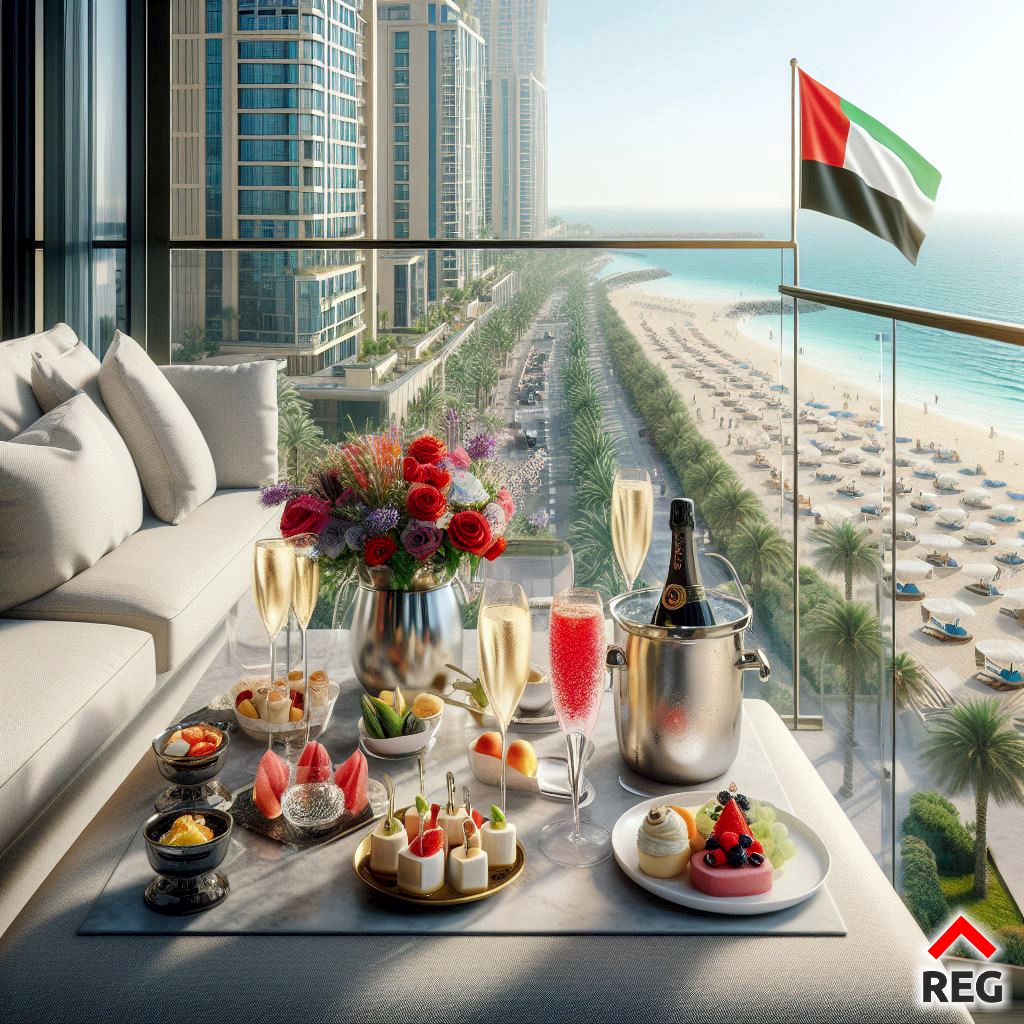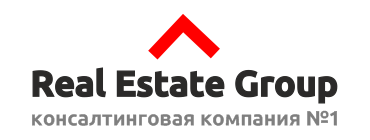Looking to buy property in Dubai? Write to us on WhatsApp and we will select the best options for you. Everybody buys from us!
Chapter 4: Formalizing the purchase of a luxury apartment in a building under construction in 2023.
Buying a luxury apartment in a building under construction in Dubai in 2023 is a complex and lengthy process that involves various steps and procedures. Buying a luxury apartment in a building under construction in Dubai in 2023 is a complex and lengthy process involving various steps and procedures, which Real Estate Group will detail in this chapter. Formalizing the purchase of a luxury apartment in a building under construction in Dubai in 2023 can be done with the help of a real estate broker, who can guide and support the buyer throughout the process.
The process of formalizing the purchase of a luxury apartment in a building under construction in Dubai in 2023 with the help of a real estate broker can be summarized as follows:

1. Signing a reservation form and paying a deposit: The first step is to sign a reservation form and pay a deposit to the developer or the seller, which confirms the buyer’s interest and intention to buy the apartment. The reservation form contains the basic details of the apartment, such as the location, the size, the price, and the payment plan. The deposit is usually 10% of the property value, which is refundable in case of cancellation or non-completion of the project. The real estate broker can help the buyer to review and understand the reservation form, negotiate the deposit amount, and arrange the payment method.
2. Signing a sale and purchase agreement and paying the first installment: The second step is to sign a sale and purchase agreement and pay the first installment to the developer or the seller, which finalizes the terms and conditions of the sale and purchase of the apartment. The sale and purchase agreement contains the full details of the apartment, such as the specifications, the features, the facilities, the services, the completion date, and the penalties. The first installment is usually 10% of the property value, which is non-refundable in case of default or breach of contract. The real estate broker can help the buyer to review and understand the sale and purchase agreement, negotiate the terms and conditions, and arrange the payment method.
3. Registering the property with the Dubai Land Department and paying the registration fee: The third step is to register the property with the Dubai Land Department and pay the registration fee, which legalizes the ownership and the transfer of the property from the developer or the seller to the buyer. The registration of the property requires the submission of various documents, such as the passport and visa copies of the buyer and the seller, the sale and purchase agreement, the no-objection certificate from the developer, and the proof of payment. The registration fee is usually 4% of the property value, which is payable by the buyer or the seller or both, depending on the agreement. The real estate broker can help the buyer to prepare and submit the documents, coordinate with the Dubai Land Department, and arrange the payment method.
4. Obtaining a no-objection certificate from the developer and paying the service charge: The fourth step is to obtain a no-objection certificate from the developer and pay the service charge, which authorizes the completion and the delivery of the property from the developer to the buyer. The no-objection certificate is a document that confirms that the developer has no objection to the transfer of the property to the buyer, and that the buyer has fulfilled all the obligations and payments. The service charge is a fee that covers the maintenance and management of the common areas and facilities of the project, such as the lobby, the elevator, the pool, the gym, and the security. The service charge is usually 2% of the property value, which is payable annually by the buyer. The real estate broker can help the buyer to obtain the no-objection certificate from the developer, verify the completion and the quality of the property, and arrange the payment method.
5. Receiving the keys and the title deed upon completion and paying the balance: The fifth and final step is to receive the keys and the title deed upon completion and pay the balance to the developer or the seller, which completes the possession and the transfer of the property from the developer or the seller to the buyer. The keys and the title deed are the documents that grant the buyer the right to access and use the property. The balance is the remaining amount of the property value, which is payable upon completion and delivery of the property. The balance is usually 80% of the property value, which can be paid by cash, cheque, bank transfer, or mortgage. The real estate broker can help the buyer to receive the keys and the title deed from the developer or the seller, inspect and handover the property, and arrange the payment method.
Real Estate Group has selected a list of documents that must be provided to a buyer in 2023 to formalize the purchase of a luxury apartment in a building under construction in Dubai:
1. Passport and visa copies: These are the identification documents that prove the identity and the nationality of the buyer.
2. Proof of income and bank statements: These are the financial documents that prove the income and the bank balance of the buyer.
3. Credit report and pre-approval letter: These are the credit documents that prove the credit history and the credit score of the buyer, and the pre-approval of the mortgage loan from the bank, if applicable.
4. Power of attorney and identification of the representative: These are the legal documents that authorize and identify the representative of the buyer, if the buyer is not present or available to sign the documents or make the payments.
The documents that a buyer should request from the developer or seller in 2023 to formalize the purchase of a luxury apartment in a building under construction in Dubai, Real Estate Group recommends are as follows:
1. Project brochure and master plan: These are the marketing documents that provide the overview and the layout of the project, such as the location, the size, the design, the features, the facilities, and the services of the project.
2. Construction progress report and completion certificate: These are the technical documents that provide the status and the quality of the construction of the project, such as the milestones, the delays, the defects, and the remedies of the construction of the project.
3. Developer’s license and escrow account details: These are the legal documents that provide the legitimacy and the security of the developer and the project, such as the license number, the registration number, the escrow account number, and the escrow account balance of the developer and the project.
4. Sale and purchase agreement and payment receipts: These are the contractual documents that provide the terms and conditions and the proof of payment of the sale and purchase of the property, such as the price, the payment plan, the penalties, and the receipts of the deposit and the installments of the property.
Payment methods that Real Estate Group offers, buyers to use in 2023 for the purchase of a luxury apartment in a building under construction in Dubai:
1. Cash: This is the payment method that involves the use of physical currency, such as dirhams, dollars, or euros, to pay for the property. This payment method is fast, easy, and convenient, but it also has some disadvantages, such as the risk of loss, theft, or counterfeit, the limit of the amount, and the lack of traceability and security.
2. Cheque: This is the payment method that involves the use of a written order, such as a personal cheque, a cashier’s cheque, or a certified cheque, to pay for the property. This payment method is safe, secure, and traceable, but it also has some disadvantages, such as the risk of bounce, fraud, or cancellation, the delay of the clearance, and the fee of the issuance and the processing.
3. Bank transfer: This is the payment method that involves the use of an electronic transfer, such as a wire transfer, a direct deposit, or a SWIFT transfer, to pay for the property. This payment method is fast, easy, and convenient, but it also has some disadvantages, such as the risk of error, fraud, or hacking, the fee of the transfer and the conversion, and the regulation of the bank and the country.
4. Credit card: This is the payment method that involves the use of a plastic card, such as a Visa, a Mastercard, or an American Express, to pay for the property. This payment method is fast, easy, and convenient, but it also has some disadvantages, such as the risk of theft, fraud, or misuse, the limit of the amount and the credit, and the fee of the transaction and the interest.
5. Mortgage: This is the payment method that involves the use of a loan, such as a conventional mortgage, an Islamic mortgage, or a subprime mortgage, to pay for the property. This payment method is flexible, affordable, and beneficial, but it also has some disadvantages, such as the risk of default, foreclosure, or bankruptcy, the requirement of the eligibility and the documentation, and the fee of the registration and the interest.
The taxes, fees and other charges that a buyer will have to pay additionally in 2023 when finalizing the purchase of a luxury apartment in a building under construction in Dubai, Real Estate Group outlines below:
1. Registration fee: This is a fee that is payable to the Dubai Land Department for registering the property and issuing the title deed. The registration fee is usually 4% of the property value, which is payable by the buyer or the seller or both, depending on the agreement.
2. Service charge: This is a fee that is payable to the developer for maintaining and managing the common areas and facilities of the project, such as the lobby, the elevator, the pool, the gym, and the security. The service charge is usually 2% of the property value, which is payable annually by the buyer.
3. Agency commission: This is a fee that is payable to the real estate broker for providing the services and assistance for the sale and purchase of the property, such as market research, property search, property valuation, property inspection, property reservation, property registration, property transfer, property management, and property resale or rental. The agency commission is usually 2% of the property value, which is payable by the buyer or the seller or both, depending on the agreement.
4. Transfer fee: This is a fee that is payable to the developer or the seller for transferring the ownership and the possession of the property from the developer or the seller to the buyer. The transfer fee is usually 0.25% of the property value, which is payable by the buyer or the seller or both, depending on the agreement.
5. Mortgage registration fee: This is a fee that is payable to the Dubai Land Department for registering the mortgage loan and issuing the mortgage certificate, if the buyer is using a mortgage to pay for the property. The mortgage registration fee is usually 0.25% of the loan amount, which is payable by the buyer.
6. Valuation fee: This is a fee that is payable to a professional appraiser for valuing the property and issuing the valuation report, which is required by the bank for approving the mortgage loan, if the buyer is using a mortgage to pay for the property. The valuation fee is usually AED 2,500 - 3,500, which is payable by the buyer.
7. Legal fee: This is a fee that is payable to a professional lawyer for reviewing and drafting the legal documents and contracts, and representing the buyer in the legal and financial formalities, if the buyer is using a lawyer to assist with the purchase of the property. The legal fee is usually AED 5,000 - 10,000, which is payable by the buyer.
Real Estate Group has predicted the risks that a buyer may face and what to pay special attention to in 2023 when making a purchase of a luxury apartment in a building under construction in Dubai are as follows:
1. Delay or cancellation of the project: This is a risk that the buyer may face if the developer fails to complete and deliver the project on time or at all, due to various reasons, such as financial problems, legal disputes, technical issues, or market changes. This risk can result in the loss of the deposit, the installments, the interest, and the opportunity cost of the buyer. The buyer should pay special attention to the reputation and the track record of the developer, the construction progress and the completion certificate of the project, the penalties and the remedies in the sale and purchase agreement, and the developer’s insurance and the escrow account details.
2. Defects or damages in the apartment: This is a risk that the buyer may face if the apartment has defects or damages, such as cracks, leaks, stains, or malfunctions, due to various reasons, such as poor quality, faulty installation, or accidental causes. This risk can result in the reduction of the value, the comfort, and the safety of the apartment, and the increase of the cost, the time, and the hassle of the buyer. The buyer should pay special attention to the specifications, the features, the facilities, and the services of the apartment, the inspection and the handover of the apartment, the warranty and the maintenance of the apartment, and the developer’s insurance and the escrow account details.
3. Disputes or lawsuits with the developer or the seller: This is a risk that the buyer may face if the developer or the seller breaches the contract or violates the law, due to various reasons, such as fraud, misrepresentation, or negligence. This risk can result in the delay or cancellation of the transfer, the loss or damage of the property, and the legal and financial liabilities of the buyer. The buyer should pay special attention to the credentials and the reputation of the developer or the seller, the sale and purchase agreement and the payment receipts, the registration and the transfer of the property, and the legal and financial documents and contracts.
4. Changes in the market conditions or the regulations: This is a risk that the buyer may face if the market conditions or the regulations change, due to various reasons, such as economic, political, or social factors. This risk can result in the fluctuation of the price, the demand, and the supply of the property, and the alteration of the rules, the fees, and the taxes of the property. The buyer should pay special attention to the market analysis, the financial modeling, and the risk assessment of the property, the current and the future development plans and projects of the area, and the legal and financial documents and contracts.
Real Estate Group further sets out, the types of risk insurance that are available to a buyer in 2023 to formalize the purchase of a luxury apartment in a building under construction in Dubai are:
1. Developer’s insurance: This is an insurance that covers the construction risks and the liability claims of the developer and the project, such as delay, cancellation, defect, damage, dispute, or lawsuit. This insurance is usually provided by the developer and paid by the buyer as part of the service charge.
Looking to buy property in Dubai? Write to us on WhatsApp and we will select the best options for you. Everybody buys from us!
2. Buyer’s insurance: This is an insurance that covers the payment risks and the cancellation costs of the buyer and the property, such as default, foreclosure, bankruptcy, or breach of contract. This insurance is usually provided by the bank and paid by the buyer as part of the mortgage registration fee, if the buyer is using a mortgage to pay for the property.
3. Property insurance: This is an insurance that covers the fire, flood, earthquake, and theft risks of the buyer and the property, such as loss, damage, or injury. This insurance is usually provided by an insurance company and paid by the buyer as a separate premium.
4. Mortgage insurance: This is an insurance that covers the default, death, or disability risks of the buyer and the loan, such as non-payment, repossession, or cancellation. This insurance is usually provided by the bank and paid by the buyer as part of the mortgage registration fee, if the buyer is using a mortgage to pay for the property.






